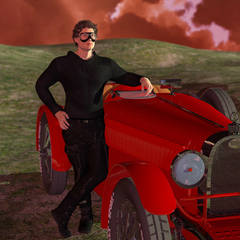One question about basic watercooling
-
Featured Topics
-
Topics
-
Aden101 ·
Posted in Laptops and Pre-Built Systems0 -
JordanTrace ·
Posted in Audio0 -
systemdonut ·
Posted in New Builds and Planning1 -
awdasdwasdfgeasdf ·
Posted in New Builds and Planning0 -
3
-
1
-
12
-
andej ·
Posted in Networking1 -
HALLOFFAMEGALAXFAN900 ·
Posted in Programs, Apps and Websites2 -
IceTeaSRB ·
Posted in New Builds and Planning1
-
-
play_circle_filled

Latest From Linus Tech Tips:
I Will NOT Give You $250 for Your Broken Game - WAN Show April 26, 2024
-
play_circle_filled

Latest From ShortCircuit:
I tried 20 influencer foods, here are the best… and the worst…














Create an account or sign in to comment
You need to be a member in order to leave a comment
Create an account
Sign up for a new account in our community. It's easy!
Register a new accountSign in
Already have an account? Sign in here.
Sign In Now